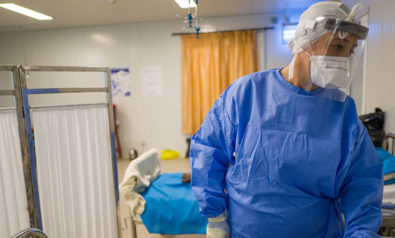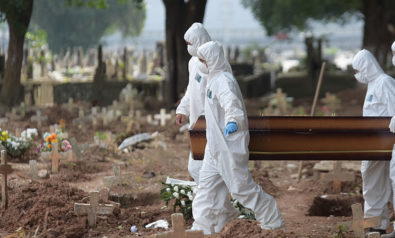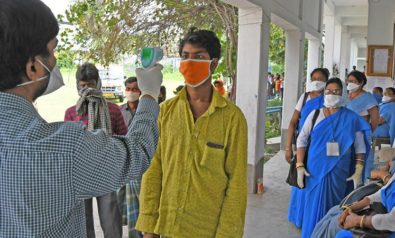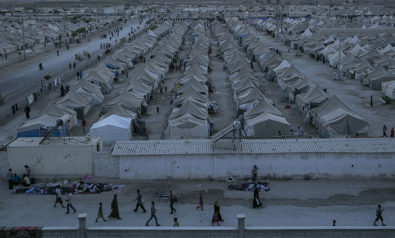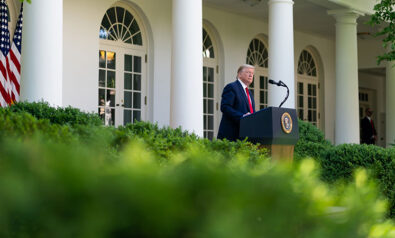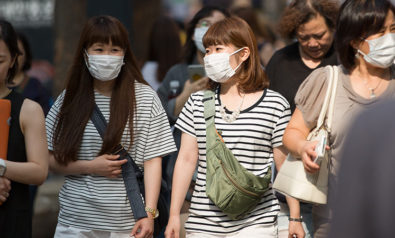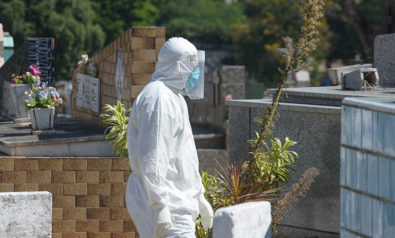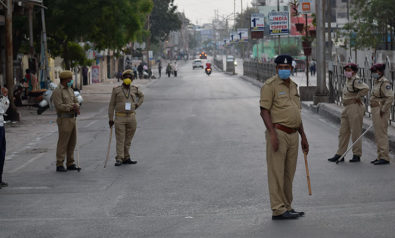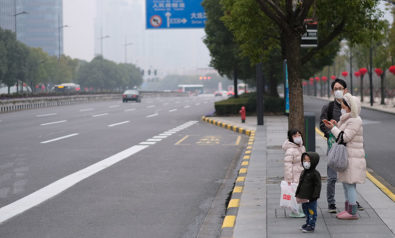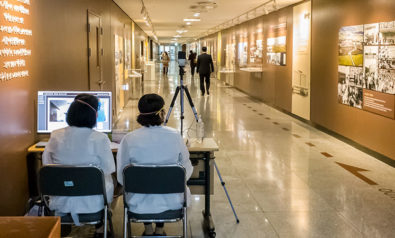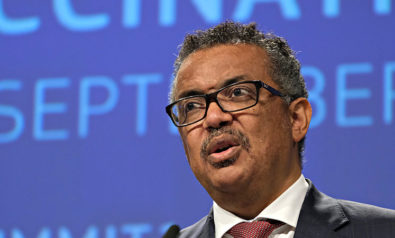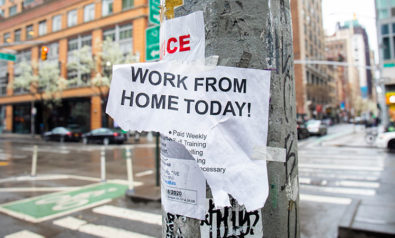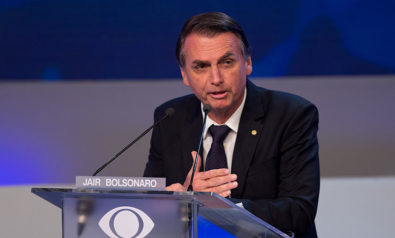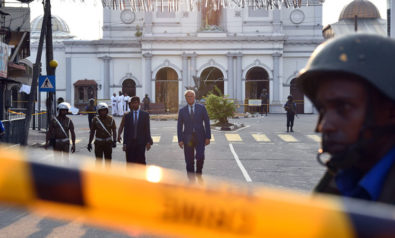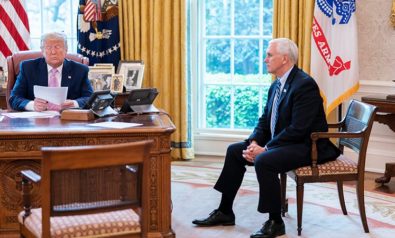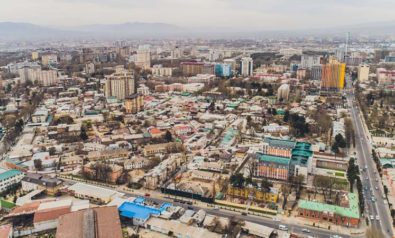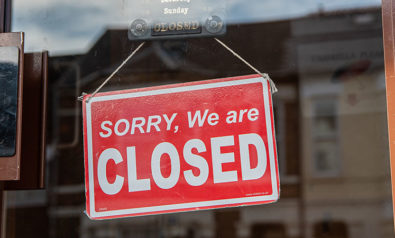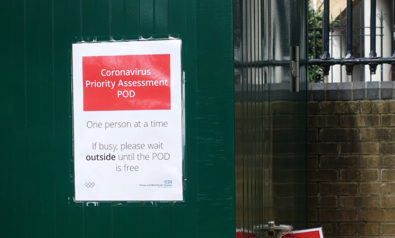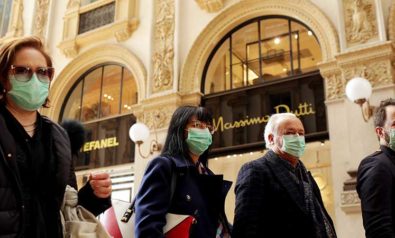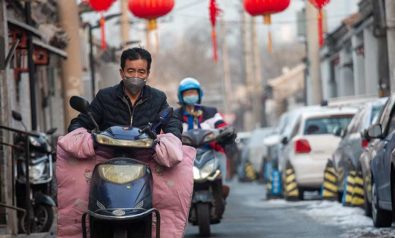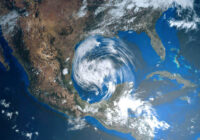The catalog of omissions in the British government’s handling of the COVID-19 pandemic is well known. The decision to lock down was taken far too late in the day. Scientists have been too slow to criticize one another and too sure of their assumptions and methods. Shortages of personal protective equipment (PPE) are killing nurses, doctors and care workers. Homes for the elderly have been pressured to accept untested patients from hospitals. Figures on deaths are unreliable, fragmented and delivered late.
Attempts to test and track the virus were abandoned weeks ago. Testing of medical staff and people with symptoms at an early stage has been inconsistent or absent, and remains a shamble. The list goes on.
But it is extremely unlikely that successful prosecutions will ever be brought. Nor is there any certainty that Prime Minister Boris Johnson and his ministers will suffer at the ballot box or be punished by unrest on the streets. Why? Governments, to some extent, reflect society. A good many people in Britain, even if they don’t vote Conservative, share the attitudes and mores of their government.
Moral Cowardice
Professor Christopher Whitty, the country’s chief medical officer, speaking at a Downing Street press conference last week, said that when we can “look back over this pandemic, I’m sure we will see a high mortality rate in care homes sadly because this is a very vulnerable group, and people are coming in and out of care homes and that cannot, to some extent, be prevented.” He knows full well that care homes have been compelled to take in patients who may well be infected. He also knows that everyone in Britain knows that care homes have issued warning after warning about the risks they are being forced to take. Yet the lie is told and left unchallenged.
This is just one instance of the moral cowardice that pervades Britain’s response. Advisers and ministers hide behind intellectual snobbery, the authority of their office and secrecy. They are not prepared to make admissions of any consequence. They pretend that what is happening is not happening.
On March 14, Health Secretary Matt Hancock denied that herd immunity without vaccination was the government’s strategy. His advisers had said otherwise on television and radio over the previous two days. The fiction then turned increasingly Byzantine. Now that the disclosure had made a lockdown politically necessary, a different study by Professor Neil Ferguson, an epidemiologist at Imperial College London who sits on the government’s Scientific Advisory Group for Emergencies (SAGE), was quickly seized on to justify the sudden change in policy.
Yet nine days later on March 25, because herd immunity remains the government’s long-term goal and provides the scientific gloss to release the UK from its lockdown, Ferguson then adjusted his study’s assumptions to generate rather different results to fit the new political realities. Instead of what initially was 510,000 deaths, he was now predicting around 20,000.
Meanwhile, in the days immediately after the revelation and denial that herd immunity was government policy, ministers had to cobble together a different response which until then was just not on the agenda, let alone planned for, according to another member of SAGE, Professor John Edmonds. Unsurprisingly, ministers were in no position to test, trace, ensure supplies of PPE, protect care homes, gather reliable and timely statistics or stop people from moving about.
Led by Science?
Moral cowardice also hangs over SAGE. When ministers boast that their decisions are “led by science,” they are referring to the deliberations of the advisory group. Repeated day after day over the last three months, the phrase has become little different to a religious chant. The sect’s membership was kept secret until April 25 when names were leaked to The Guardian. Among those was Dominic Cummings, the prime minister’s chief political adviser. By no stretch of the imagination can he be considered as a scientist, let alone impartial.
It is not just this deceit and the group’s secrecy that suggests cowardice. It marshals ideas, hunches, observations and possibilities through personal networks and coteries, and presents these as certainties, as evidence, as science. This, too, smacks of cozenage.
The group includes academics who have made their names by devising models, applying them in analysis and trumpeting their policy implications. Mathematical models are used in all kinds of disciplines and generate all kinds of interesting and curious results when one or two assumptions here or there are changed. It is these results, especially if counterintuitive, which are, to the academic, the “clever bit.”
Graham Medley (one of SAGE members) has developed mathematical models that permit him to argue that it can be in the best interests of an organism’s immune system — and by extension communities of organisms — to tolerate a level of infection rather than eradicate it altogether. The infection is not eliminated because to do so exacts a biological cost (in terms of say, energy) which may not be in the interest of that organism. The same logic applies at a different level to human societies.
One of his colleagues at SAGE, Angela McClean, who also advises the Ministry of Defense, has often argued that vaccines that are too effective and whose coverage of the population is extensive can, in her models, encourage the emergence of new, vaccine-resistant diseases. It is often best, therefore, to ensure that vaccines are only just about effective, or that highly effective vaccines are given to a small enough segment of the population.
The Only Way Out
It is not difficult to see how the group arrived at herd immunity and why, despite protestations to the contrary, it is determined to stick with it. To that end, all kinds of shenanigans have been tried. A few small instances serve to illustrate this.
On March 26, McClean’s Department of Zoology at Oxford posted an article which, on the basis of another model and its assumptions, claims that significant levels of herd immunity without vaccination have already been achieved in the UK — a useful argument and piece of “evidence” for those hoping to release from the lockdown as soon as possible.
On April 25, Cummings’ wife, Mary Wakefield, was given a slot on BBC’s Today — a radio program that claims to be strictly impartial and holding the government to account. She was given the “Thought for the Day,” a five-minute slot of uninterrupted commentary on a question usually of moral or religious in nature. Wakefield used it to say that her husband is really a very nice man. As it happens, she is also commissioning editor for The Spectator, a magazine that has run articles by journalists and doctors in favor of putting an immediate end to the lockdown and attacking Ferguson.
Herd immunity, science has decided, is the only way out. It was always so. Exposure to the coronavirus — and the illness and death that often follows — is in the interests of society. Most people intuitively know this to be wrong. But for SAGE to recognize this, and to put ambition to one side, requires a courage that its members do not possess.
Leading From a Long Way Behind
Just as distasteful is the physical cowardice of Britain’s political leaders and advisers. You won’t find Boris Johnson leading his people from the front. As the virus made its way toward Britain, and as deaths mounted in Europe, he spent a good deal of time in the countryside with his girlfriend, Carrie Symonds, playing down the threat. When the virus arrived on his doorstep in London, he was out shaking hands and did not think to attend COBRA meetings. When his own callousness finally caught up with him, he hid on a private ward behind a mask soaking up oxygen and sympathy.
He recuperated at a grace-and-favor manor house in Buckinghamshire as his government continued to evade while the people its leads were dying in their thousands. He eventually emerged on April 27, two days before he was showered with congratulatory messages from the British establishment on the birth of his child with Symonds.
His scientific advisers — and they are very much his advisers— won’t raise their heads above the parapet either, though they expect the rest of the population to do so. Don’t be fooled into thinking they are mild-mannered scholars interested only in research and education who had no idea their abstractions would be taken up and used in ways they never wanted or expected. They are on the committee because they have long made a point of becoming an influence on political and administrative policy. That ambition is written into their research articles and research grants. They are content to glide through the corridors and committee rooms of Whitehall and academia, or to sit at dinner and engage in clever conversation with the great and the good, sure in the knowledge that they are too valuable, too special to be lost to an unthinking virus.
Britain’s Shame
Hopefully, Britain will think carefully about what kind of society it has become and what kind of leaders it has thrown up. But I know it well enough to know that won’t happen. Britain will conceal its portrait in the attic, too frightened to see just how rotten it has become.
Instead, a public inquiry will be held to ensure that such a disaster “can never happen again.” The mistakes made, it will have already been decided, were structural, to be remedied by superficial organizational changes. Recommendations on the role of political advisers and the composition of scientific committees will no doubt figure. Perhaps, it will be suggested gently, universities might also want to think about encouraging more robust debate amongst scientists? Perhaps they should also look more critically at how academics are rewarded and assessed?
British exceptionalism might be mentioned, but that, it will be said — with far greater tact — is an outdated cultural predilection that probably won’t survive a few aging embarrassments on the backbenches and in the shires. By the time this anodyne report is published, years after the pandemic subsides and the political point-scoring has lost steam, any impact it might have had will be reduced to a headline or two if the news on that day is slow.
The dead will have to wait for historians, who today are probably only children, to assign responsibility and guilt, retribution and damnation, because the living are too afraid to take a long hard look at themselves.
The views expressed in this article are the author’s own and do not necessarily reflect Fair Observer’s editorial policy.
Support Fair Observer
We rely on your support for our independence, diversity and quality.
For more than 10 years, Fair Observer has been free, fair and independent. No billionaire owns us, no advertisers control us. We are a reader-supported nonprofit. Unlike many other publications, we keep our content free for readers regardless of where they live or whether they can afford to pay. We have no paywalls and no ads.
In the post-truth era of fake news, echo chambers and filter bubbles, we publish a plurality of perspectives from around the world. Anyone can publish with us, but everyone goes through a rigorous editorial process. So, you get fact-checked, well-reasoned content instead of noise.
We publish 2,500+ voices from 90+ countries. We also conduct education and training programs
on subjects ranging from digital media and journalism to writing and critical thinking. This
doesn’t come cheap. Servers, editors, trainers and web developers cost
money.
Please consider supporting us on a regular basis as a recurring donor or a
sustaining member.
Will you support FO’s journalism?
We rely on your support for our independence, diversity and quality.



